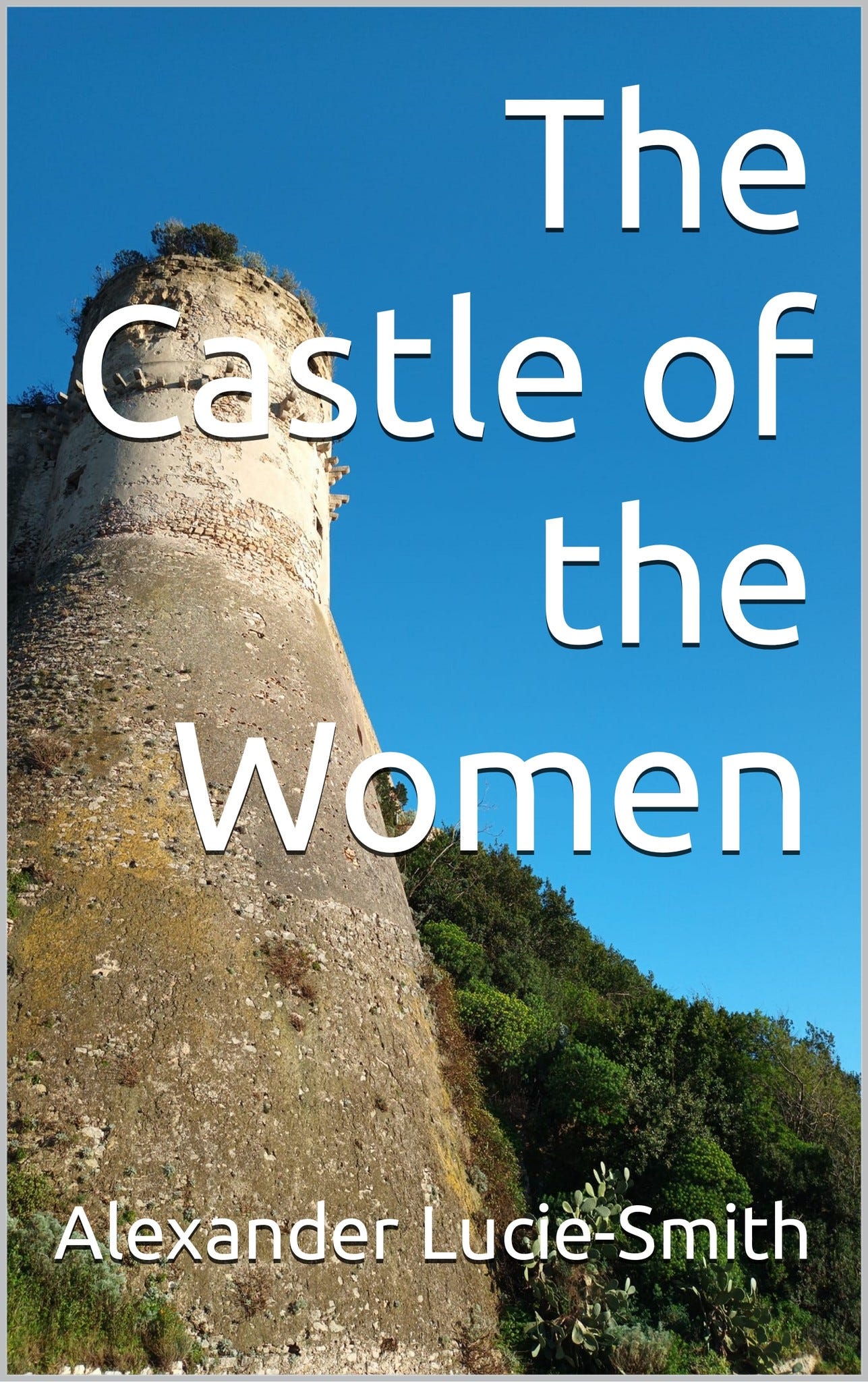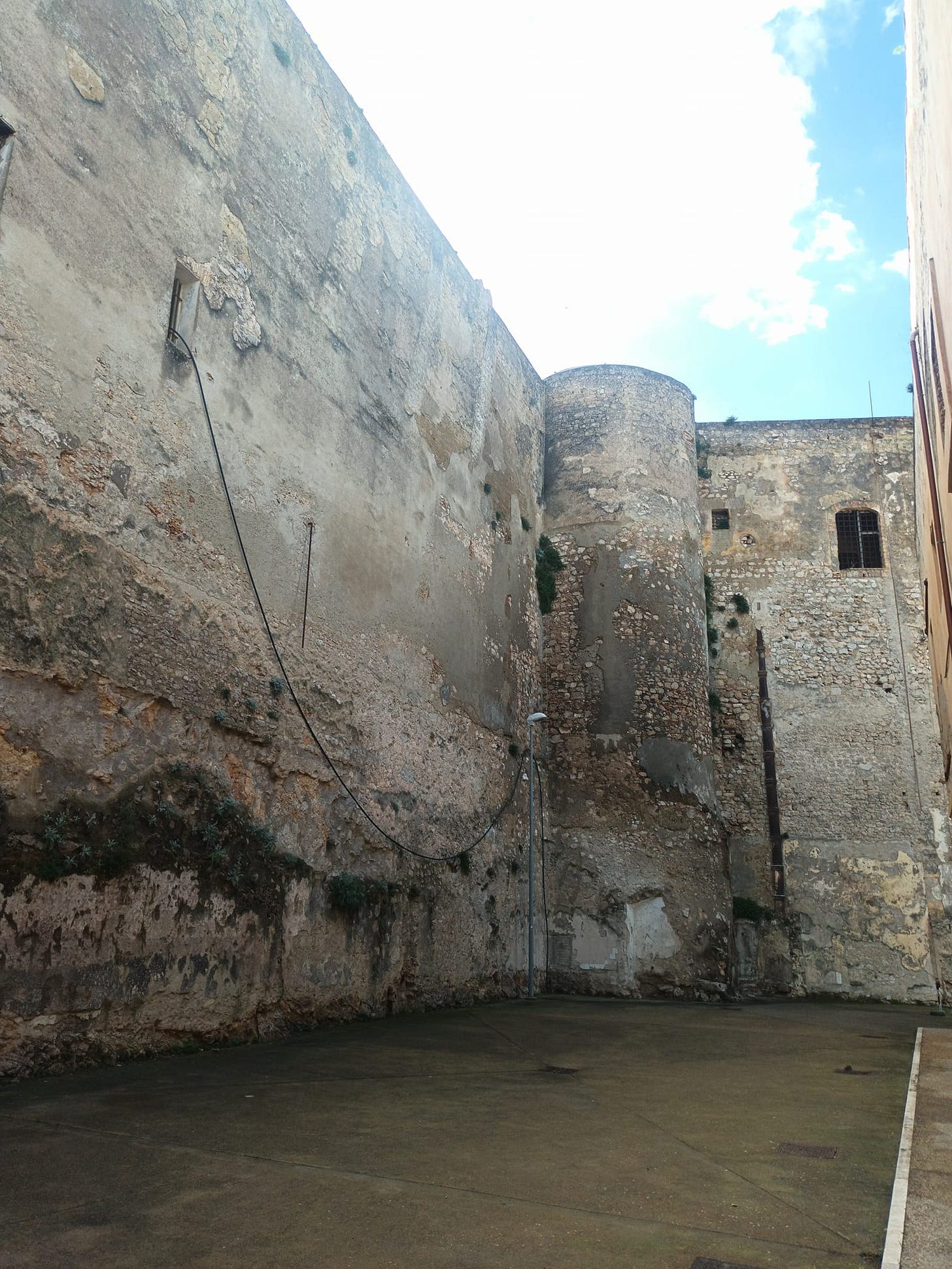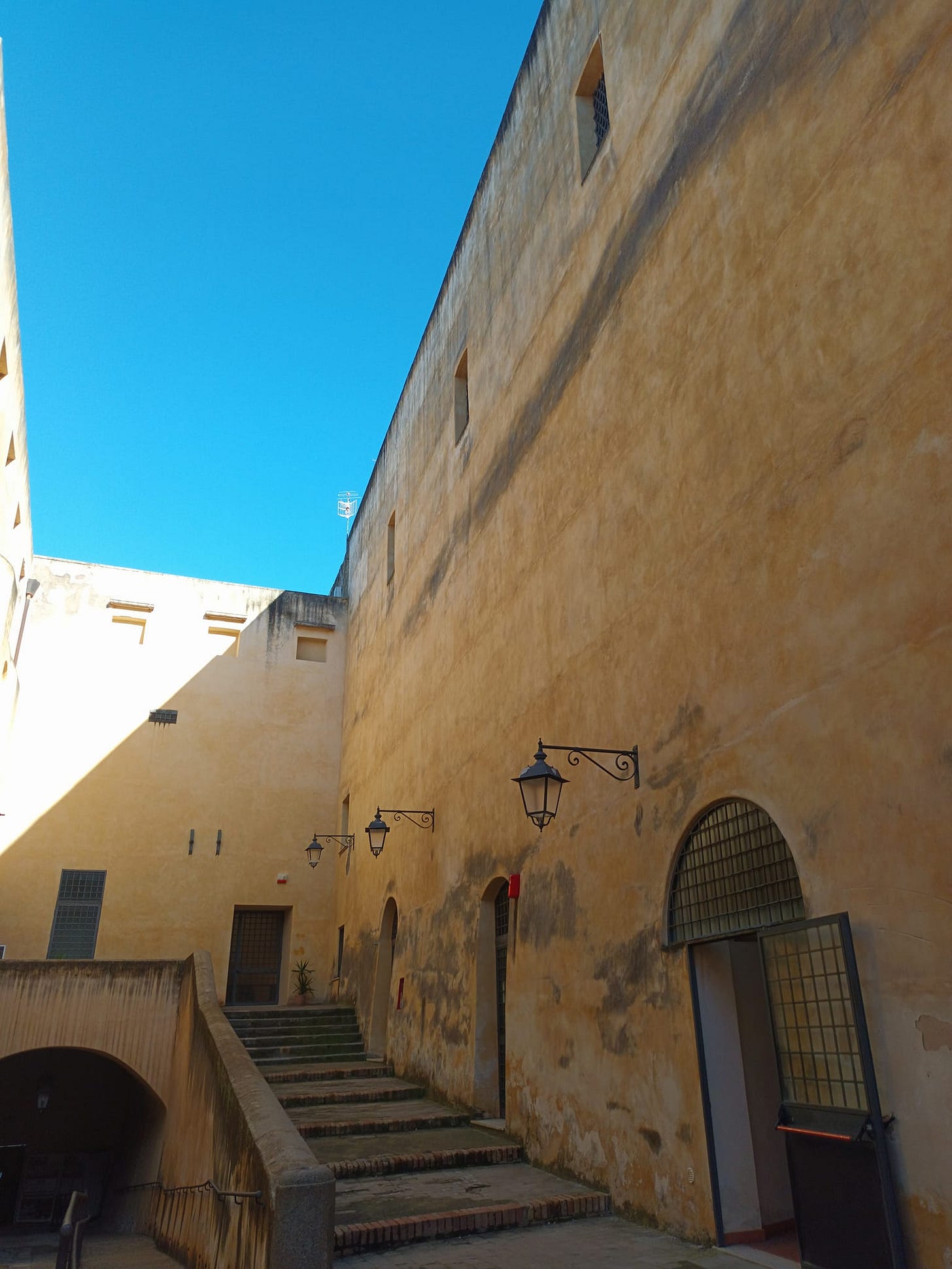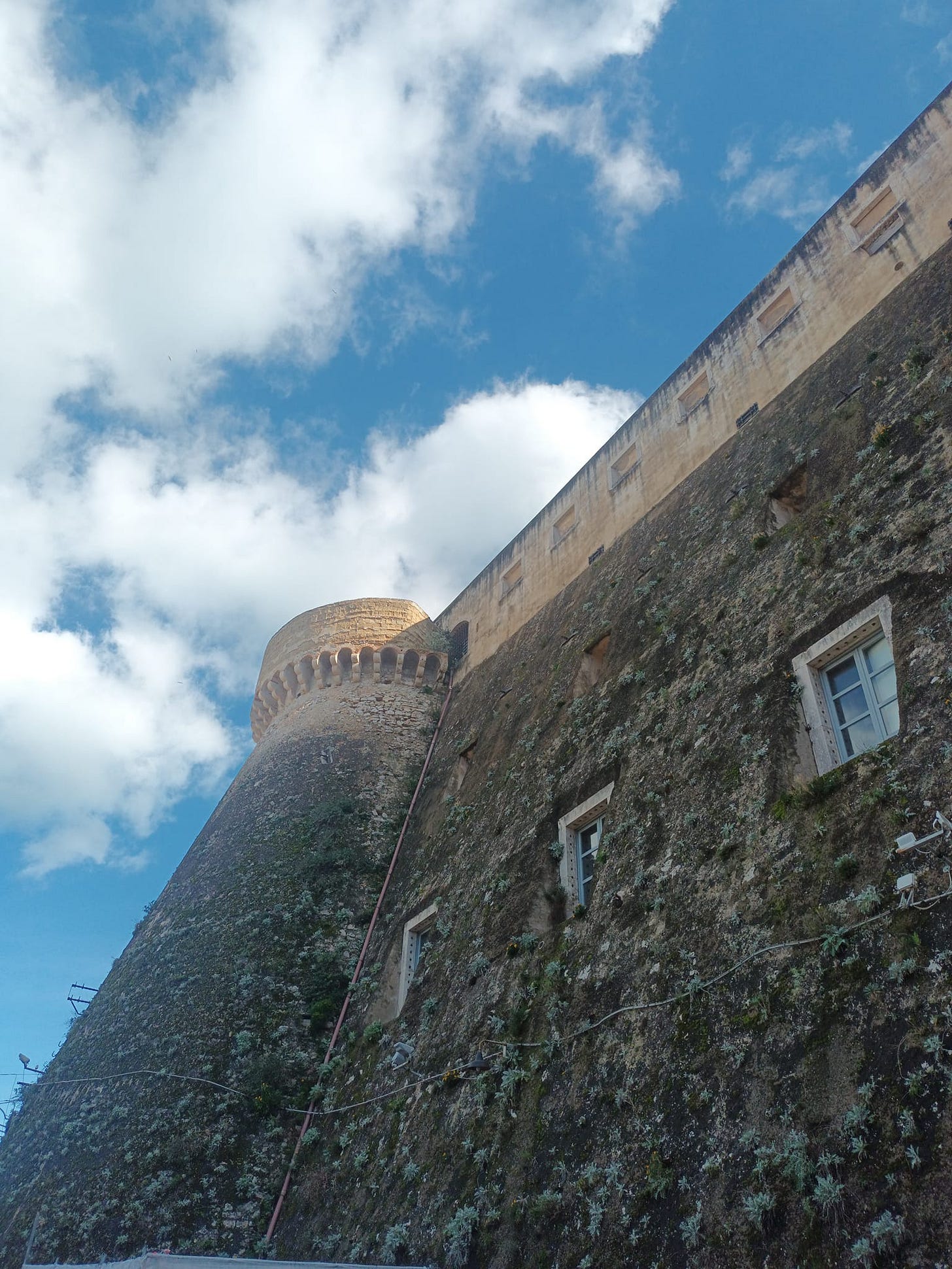The last thing I did in Gaeta was walk up to the fortress that dominates the old town, in the hope of taking some photographs, one of which I could use for my next book, which is currently being proofread. The result is seen above.
You may remember, if you have been reading so far, that the name Caltanissetta is derived from the Arabic for ‘the castle of the women’, and the new book centres on a government safe house in a medieval castle in the centre of Sicily which bears no resemblance at all to the castle I once saw outside Mussomeli, which is known as the castello Manfredonico. Some years ago now, this grim and rocky outpost struck me as the ideal place for the forces of law and order to keep those who are under witness protection and undergoing debriefing.
But back to the castle of Gaeta, which was, until the early 1990’s, a military prison and a very grim one too. There are in fact two castles in Gaeta which are adjoining. One is in use as a barracks for the Guardia di Finanza, Italy’s anti-corruption police, the other is partially used by a university, but is otherwise exactly as it was when it ceased to be a military prison. Some parts have been done up, but most of it has been left to crumble. It is a horrid and depressing place inside.
The tour one takes, and which is well worthwhile, focusses on four sections of the building. The first is the corridor of cells dating to the time of the Bourbon Kingdom. These are tiny little rooms, barely bigger than cupboards, each equipped with a stone shelf for sleeping on, and underneath it a cubby hole for a chamber pot. The only light was provided by an opening high in the wall which gave onto the corridor, which perhaps itself was not lit.
The second section one visits dates from the unification of Italy, and these are the punishment cells on the top floor - one of them padded. The top floor was the worst, of course, being very hot in summer and very cold in winter. These are reasonable sized rooms, but the windows are the sort that one cannot look out of: one merely sees a slot of sky at the top of a stone barrier. These sorts of windows are described by Stendhal in The Charterhouse of Parma and I have also seen them in the prison in Manhattan that overlooks Central Park, so this sort of punishment is still in use today.
One then goes downstairs and one visits as series of empty rooms where the military prisoners once slept in dormitories. Some of these were badly behaved soldiers but the overwhelming majority were conscientious objectors who refused to co-operate with conscription. Of these the vast majority were Jehovah Witnesses. Down below one sees the exercise yards. It is all very depressing, and a monument to the Italian government’s intolerance and stupidity in imprisoning conchies, something Britain never did, I am happy to note.
Finally, high above the cliffs, are some abandoned but spacious rooms where two war criminals were kept, Herbert Kappler and Walter Reder, two mass murderers who are still notorious in Italy. They were relatively well housed and did have a nice sea view from their exercise terrace above their quarters. The terrible irony of the relatively good treatment of these men, compared to that if the conchies, was not lost on anyone. As our very good guide pointed out: the Germans were there because they were so keen on killing; the Jehovah Witnesses were there because they refused to kill.
The castle of Gaeta is a monument to political oppression. Gladstone hated the Bourbons after he had toured the prisons in Naples and declared the regime to be the negation of God erected into a system of government. No doubt the Bourbon regime was very oppressive. But the imprisonment of conchies by the Italian government until fairly recently seems to me something that has been too easily forgotten. Nor is it of purely historic interest. To look up at the castle in Gaeta or anywhere else in the south of Italy, is to be reminded that the state is not your friend but your oppressor. Incidentally, that is a feeling that some of the characters in ‘The Castle of the Women’ feel too.







Can’t wait for your next book to come out. But I’m a tad scared if this sub stack is anything to go by! 😱